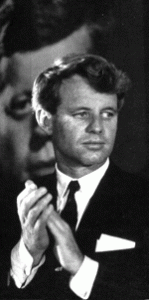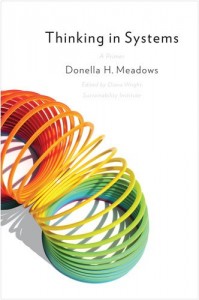Robert F. Kennedy, in a speech at the University of Kansas, March 18, 1968, said:
“Our Gross National Product, now, is over $800 billion dollars a year, but that Gross National Product – if we judge the United States of America by that – that Gross National Product counts air pollution and cigarette advertising, and ambulances to clear our highways of carnage. It counts special locks for our doors and the jails for the people who break them. It counts the destruction of the redwood and the loss of our natural wonder in chaotic sprawl. It counts napalm and counts nuclear warheads and armored cars for the police to fight the riots in our cities. It counts Whitman’s rifle and Speck’s knife, and the television programs which glorify violence in order to sell toys to our children. Yet the gross national product does not allow for the health of our children, the quality of their education or the joy of their play. It does not include the beauty of our poetry or the strength of our marriages, the intelligence of our public debate or the integrity of our public officials. It measures neither our wit nor our courage, neither our wisdom nor our learning, neither our compassion nor our devotion to our country, it measures everything in short, except that which makes life worthwhile. And it can tell us everything about America except why we are proud that we are Americans.”
As Donella Meadows explains in Thinking In Systems, ISBN: 978-1-60358-055-7, “The GNP lumps together goods and bads. (If there are more car accidents and medical bills and repair bills, the GNP goes up.) It counts only marketed goods and services. (If all parents hired people to bring up their children, the GNP would go up.) … It measures effort rather than achievement, gross production and consumption rather than efficiency. New light bulbs that give the same light with one-eighth the electricity and that last ten times as long make the GNP go down.”
“GNP,” Professor Meadows said, “is a measure of throughput – flow of stuff made and purchased in a year – rather than capital stocks, the houses and cars and computers and stereos that are the source of real wealth and real pleasure. It could be argued that the best society would be one in which capital stocks can be maintained with the lowest possible throughput, rather than the highest.”

